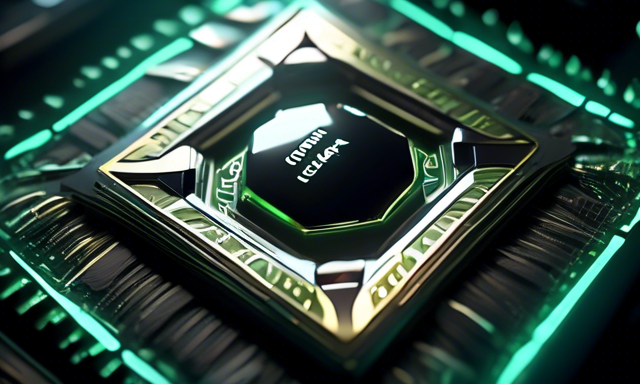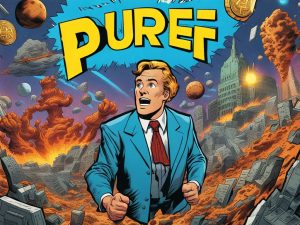Quantum Programming Simplified with NVIDIA’s CUDA-Q v0.8 Update 🚀
NVIDIA has unveiled the latest version of CUDA-Q v0.8, an open-source programming model tailored to streamline the creation of hybrid quantum classical applications. This update brings a host of enhancements aimed at boosting simulation performance, developer experience, and overall flexibility in quantum programming, as detailed in the NVIDIA Technical Blog.
Key Features of CUDA-Q v0.8
CUDA-Q, previously known as NVIDIA CUDA Quantum, is engineered to harness the computational power of CPUs, GPUs, and QPUs. With the release of version 0.8, users can expect the following key features:
- State handling
- Pauli words
- Custom unitary operations
- Visualization tools
- NVIDIA Grace Hopper integration
Enhanced State Handling
One critical aspect of quantum algorithms is quantum state preparation, which can be intricate. The state handling feature in CUDA-Q v0.8 enables the preservation and reusing of quantum states in GPU memory, optimizing simulations involving multiple iterations or varied parameters. This results in significantly improved performance, simplifying the execution of recursive or iterative quantum algorithms.
For instance, in a benchmark involving a 25-qubit Heisenberg Hamiltonian simulation, state handling led to a 24x faster total simulation time compared to previous versions.
Support for Pauli Words
CUDA-Q v0.8 now supports Pauli words, tensor products of single-qubit Pauli operators, enhancing the capability for intricate operations in quantum algorithms. The introduction of the ‘pauli_word’ type allows users to input Pauli words into a quantum kernel, converting them to a quantum circuit operation using ‘exp_pauli’.
This feature proves particularly valuable in Hamiltonian simulation, as exemplified in the Trotter simulation provided by NVIDIA.
Custom Unitary Operations
The latest release of CUDA-Q introduces support for custom unitary operations, crucial for designing abstract quantum algorithms. Users can define custom unitary operations as NumPy arrays and utilize them within CUDA-Q kernels, enabling controlled operations on multiple qubits and offering increased flexibility in quantum algorithm design.
Improved Visualization Tools
Visualization tools have received upgrades in CUDA-Q v0.8, thanks to contributions from the 2024 Unitary Hack event participants. Users can now visualize quantum circuits and Bloch spheres, simplifying the design and collaboration on quantum algorithms.
For example, users can visualize any kernel using the ‘print(cudaq.draw(kernel))’ command, which provides an ASCII representation in the terminal. Additionally, CUDA-Q integrates QuTip, an open-source Python package, for visualizing Bloch spheres corresponding to single-qubit states.
NVIDIA Grace Hopper Superchip Integration
CUDA-Q v0.8 is optimized to leverage the full performance of the NVIDIA GH200 Superchip, also known as the Grace Hopper Superchip. This integration maximizes quantum simulation speed by utilizing the chip’s extensive memory bandwidth. Simulations running on the GH200 Superchip require only a quarter of the nodes previously needed, addressing memory bottlenecks commonly encountered in quantum simulations.
Embark on Quantum Programming with CUDA-Q
With continual enhancements, CUDA-Q v0.8 serves as a robust platform for developing quantum-accelerated supercomputing applications. Positioned for future deployment in hybrid CPU, GPU, and QPU environments, CUDA-Q is essential for advancing practical quantum computing.
For additional information and to provide feedback, visit the NVIDIA CUDA-Q GitHub repository.
Hot Take: Embrace Simplified Quantum Programming with CUDA-Q v0.8 🌌
Prepare to delve into the world of quantum programming with NVIDIA’s latest CUDA-Q v0.8 update. With enhanced state handling, support for Pauli words, custom unitary operations, visualization tools, and integration with the powerful NVIDIA Grace Hopper Superchip, CUDA-Q v0.8 offers a seamless experience for developing hybrid quantum classical applications. Stay ahead in the quantum computing realm by exploring the possibilities enabled by CUDA-Q v0.8!





 By
By
 By
By
 By
By
 By
By

 By
By